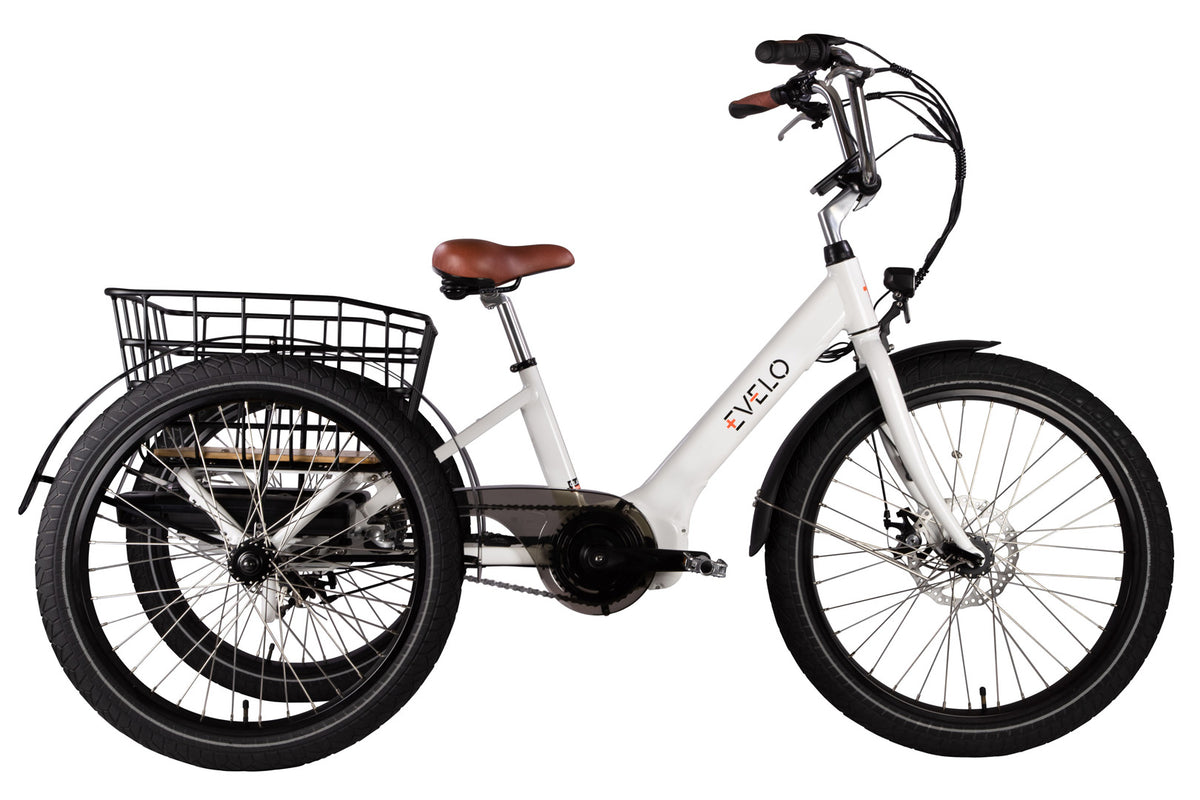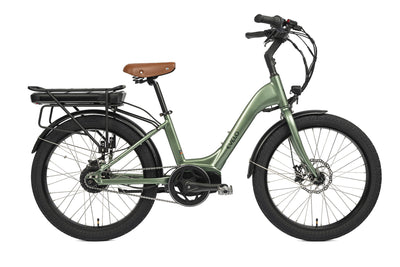Riding an electric bike, whether as you commute or just for fun, can significantly contribute to your health, improving cardiovascular conditioning, improving brain function, and helping you maintain healthy body weight.
Bike riding is one of many kinds of exercise that get you outside, elevate your heart rate, and induce the many benefits of physical activity.
Improve Your Heart Health
Several studies have demonstrated a connection between bicycling and improved heart health.
In 2017, for example, researchers from the University of Glasgow found an association between bicycling to work and a lower risk of premature death after studying 264,337 people for five years. In fact, cycling about 30 miles a week was shown to significantly lower the risk of heart disease.
“Cycling all or part of the way to work was associated with a substantially lower risk of adverse health outcomes. Those who cycled the full length of their commute had an over 40 percent lower risk of heart disease, cancer, and overall mortality over the five years of follow-up,” said Dr. Jason Gill of the Institute of Cardiovascular and Medical Sciences, according to a Cycling Weekly article.
If one assumes regularly riding a bicycle or electric bike (perhaps 30 miles per week) is similar to bike commuting, it will follow that regularly riding, whether to work or not, may help improve heart health specifically and overall health generally.
Finally, UPMC Pinnacle reported that “people who biked regularly had about 15 percent fewer heart attacks than non-cyclists. Even small amounts of time devoted to the activity were linked to lower rates of heart disease.”
Strengthen Your Cardiovascular System
As we have previously reported, “cycling on an electric bike just a few times each week can improve an adult’s cardio-respiratory performance and general health in ways similar to riding a conventional bicycle or taking vigorous walks, according to several clinical studies.”
“One of the most telling studies, released in the May 2018 edition of the Clinical Journal of Sports Medicine, compared the peak oxygen uptake (VO2 max) of 32, overweight adults before and after four weeks of bicycle commuting.”
Separately, according to Dr. Amar Singal, a cardiologist, “cycling is one of the best cardio exercises for people of all age groups and all body types. It not only helps burn calories and keeps weight under control, but also helps build stamina and increase muscle and bone strength. Being a low impact exercise, it is also soft on the joints and unlike hard gym training sessions, it doesn’t put you at risk of overuse injuries or sprains. This is why it can also be taken up by elderly people who have arthritic joints.”

Boost Your Immune System
Moderate exercise, like regularly riding an electric bike, may reduce an adult’s risk of contracting an upper respiratory tract infection by 29 percent compared to adults who don’t exercise, according to often-cited research published in The Journal of Applied Physiology.
In addition, researchers at the University of California-San Diego found that just 20-minutes of exercise adjusted to your fitness level can boost your immune system, according to a Reader’s Digest report.
Lower Your Risk of Type-2 Diabetes
“Researchers at the University of Bristol in the United Kingdom monitored the impact riding an electric bike had on participants with type-2 diabetes. The study’s 18 subjects rode their electric bikes an average of 13 miles per week for 20 weeks,” according to a previously published EVELO article.
“The subjects enjoyed a 10.9 percent increase in predicted maximal aerobic power over the course of the study. And participants reached 74.7 percent of their maximum heart rate while riding an electric bike compared to 64.3 percent when walking.”
“Riding an electric bike is not as vigorous an exercise as riding a conventional bike or, perhaps, even running long distances, but the activity provides a better workout than simply walking. And, as this study concluded, riding an electric bike may be enough to help reduce the risks associated with type-2 diabetes, perhaps, even playing a role in remission associated with weight loss.”
Lose Weight
As just mentioned in the previous section, regularly riding a conventional bicycle or an electric bike can contribute to weight loss and an associated improvement in general health.
In fact, “If you do just two to three vigorous bouts of exercise per week for 45 minutes, you could lose a pound of fat every two weeks from the combination of calories expended during exercise plus what you burn afterward,” according to Dr. David Nieman, a professor of exercise science at Appalachian State University who was quoted in PopSugar, an online pop culture magazine.
Preserve Your Mind
“Riding an electric bike just a few times a week may improve brain function in adults 50-years-old and older, potentially reducing the risk of contracting Alzheimer’s disease, vascular dementia, and other age-associated neurodegenerative disorders, according to a new report from the U.K.-based cycleBOOM project.”
“Released in February 2019, the cycleBOOM study, ‘The Effect of Cycling on Cognitive Function and Well-being in Older Adults,’ shows that to be beneficial outdoor exercise doesn’t necessarily have to be strenuous. A 60-year-old doesn’t have to do high-impact running to improve her brain health. In fact, riding an electric bike for recreation or basic transportation will improve brain function.”
“‘It is really encouraging that this research suggests older adults’ cognitive function (particularly what we call an executive function as well as processing speed) could be improved by cycling in the natural or urban environment, even when that was on an electrically assisted ebike,’ said Dr. Louise-Ann Leyland, one of the study’s authors,” according to a published EVELO report.
Get Better Sleep
Regular exercise, including riding an electric bike, may also contribute to better sleep and fight insomnia. For example, a long term study found that getting regular exercise helped folks to fall asleep more quickly than sedentary subjects. People who exercised were also less likely to wake up during the night than were people who did not exercise.
Similarly, a University of Georgia study found that when adults exercised less they complained about sleep problems more.
Reduce Stress
“People who exercise regularly will tell you they feel better. Some will say it’s because chemicals called neurotransmitters, which are produced in the brain, are stimulated during exercise. Since it’s believed that neurotransmitters mediate people’s moods and emotions, they can make you feel better and less stressed,” according to the American Council on Exercise.







 Easy Assembly
Easy Assembly
 Service and Repairs
Service and Repairs
 Ebike Articles & Content
Ebike Articles & Content










